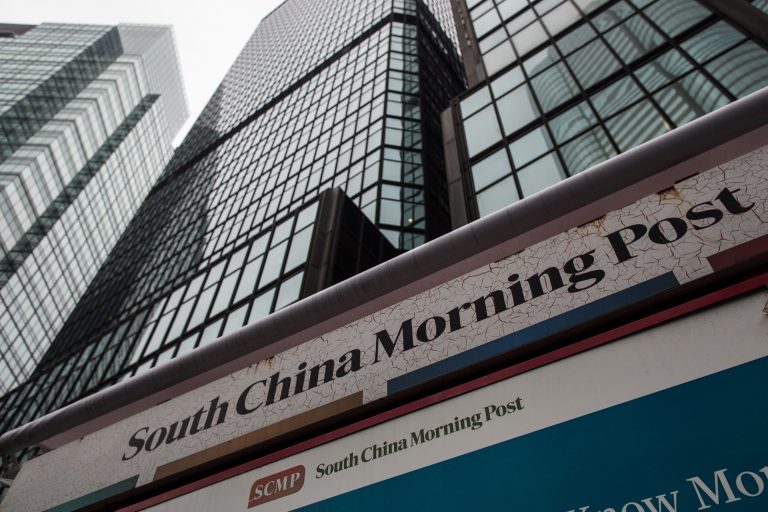Hong Kong-based South China Morning Post (SCMP) is one of the most well-known media outlets in the city. Recently, there have been reports that a Chinese state-backed company might acquire SCMP. However, the outlet has confirmed that there are no such plans in place. SCMP is currently owned by Jack Ma’s Alibaba Group.
Speculation about SCMP’s sale to a Beijing-backed entity began following a Bloomberg report published on Nov. 5. People familiar with the matter revealed to Bloomberg that Bauhinia Culture (Hong Kong) Holdings Ltd. is interested in a deal with the outlet. Since Bauhinia is state-owned, acquiring SCMP would allow the Chinese regime more control over Hong Kong’s media.
“The Liaison Office — the Chinese government’s main office in the former British colony — owns Bauhinia via its Sino United Publishing Holdings Ltd. unit… General Manager Wen Hongwu is ex-secretary general of the Liaison Office, and chairman Mao Chaofeng is the former executive vice governor of China’s southern province of Hainan,” according to the Bloomberg report.
A spokesperson for Alibaba stated that the company was not discussing a potential sale of SCMP with any entity. SCMP CEO Gary Liu also sent a message to employees to assuage fears the outlet was being sold.
“There has never been any discussion about SCMP’s ownership, and Alibaba has no plans for any change. There’s no basis for any rumor or speculation… SCMP has grown into a global news organization with a critical and unique ‘Asian Voice.’ I have full confidence that readers of the Post will continue to rely on our credible, fact-based reporting and plurality of view,” the message stated.
Success
You are now signed up for our newsletter
Success
Check your email to complete sign up
In a statement to Nikkei Asia, an SCMP spokesperson accused Bloomberg of spreading false news. However, an SCMP staff member admitted to the outlet that he was worried about the issue.
“No matter how many times the management denies these stories, they keep coming back,” the staff member said while adding that fears of a Beijing takeover will damage mood in the newsroom. “We’ve already lost a lot of colleagues.”
In March, it was reported that Beijing was interested in Alibaba’s media assets and had asked the company to dispose of them, including SCMP together with streaming platform Youku Tudou, entertainment business Huayi Brothers, etc.
“The authorities have toughened their stance toward the Alibaba group as a whole, so the sale of media assets is likely a part of that… This may be the start of a push to dismantle the group, including the media segment,” a source with ties to a regional government told Nikkei Asia.
Ever since Jack Ma criticized Chinese regulators in October last year, the government has severely cracked down on his Alibaba group, seeking to limit the influence of the company on society,
SCMP was established more than a century ago in 1903. In 1986, media mogul Rupert Murdoch acquired the newspaper. Seven years later in 1993, Murdoch sold it to Malaysian tycoon Robert Kuok. And in 2015, Alibaba bought SCMP in a deal valued at HK$2.06 billion (US$265 million). Ever since Alibaba took over, SCMP has been criticized for slowly turning pro-Beijing in content.
The speculation of SCMP’s acquisition by a Beijing-backed company comes as the Chinese government has proposed banning privately-owned companies from being involved in media firms, whether it be setting up news operations or republishing news from foreign sources.














